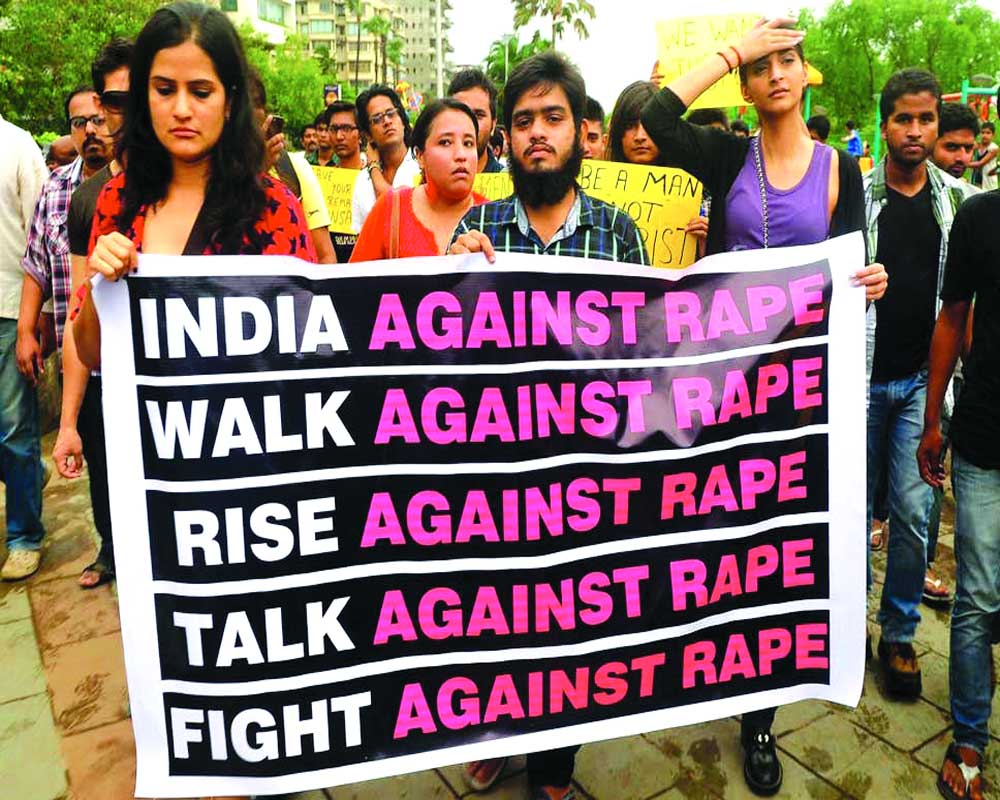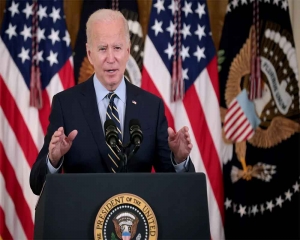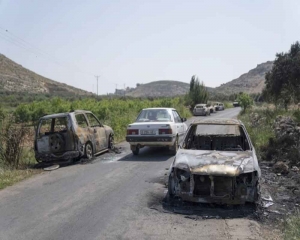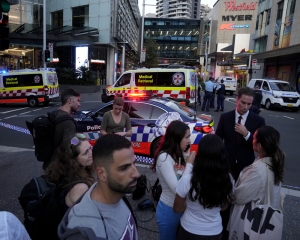Nothing will change unless public pressure forces a revamp of our policing and judiciary system so that rape probes without interference are feasible and courts are able to dispense justice quickly
There is undoubtedly an inevitable sense of déjà vu as the gruesome and shocking details of the horrific rape and murder of a young veterinarian in Hyderabad and the even more recent burning of a rape survivor on her way to court by her tormentors out on bail in Unnao, Uttar Pradesh and her subsequent death in a Delhi hospital, flood the public domain.
We have all seen it before. Not just the appalling Nirbhaya incident in Delhi seven years ago when a bright physiotherapy intern was raped, beaten, tortured and then thrown out in a naked and critically-injured condition from the moving bus onto the streets of the national Capital, leading to her death after a fortnight, but countless others after that.
Remember, the rape of an eight-year-old girl in Jammu’s Kathua district in January 2018? The child was kept captive in an unconscious state in a temple for days as the brutes repeatedly raped her and finally snuffed her life out.
There are countless other cases of rape in Bareilly, Rampur, Greater Noida, Kandhamal, Mumbai, Birbhum, Chennai and Kolkata. It’s a never-ending list, in State after State, day after day, month after month, year after year and we as a nation just hang our heads in shame or shake them in disgust, horror and sympathy and at the most take out a candle march.
As a matter of fact, statistics suggest we have one rape every 15 minutes, which for the mathematically-challenged adds up to 35,040 rapes a year, certainly 35,040 reasons for each of us to feel thoroughly ashamed and mortified.
To be fair though, before either self-flagellation crosses all limits and the majority of men in the country come to be perceived as inveterate rapists, it would help to see the issue in a larger context. Statistics on the issue tend to be inaccurate or unavailable, yet there are some comparative figures given out by the 2011 World Health Organisation (WHO) report (Violence against women — Intimate partner and sexual violence against women) or the self-proclaimed independent agency, the World Population Review.
While the WHO (as per data of 2010) and the World Population Review (2019) place incidents of rape in India at 1.8 per 100,000 of the population based on police reports, a nation such as the US, that has now issued a travel advisory for its citizens travelling through India, has an incident rate of 27.3 per 100,000 of its population.
For that matter, South Africa leads with an incident rate of 132.4 per 100,000 of the population. Undoubtedly, figures in India may be more than a little skewed, because of unreported cases or the unwillingness of the police to write them up, yet even if the incidents were ten times more than have been reported we would still be better off than the US.
Incidentally, it is worth noting that most other countries are no different than us and also face the problem of under-reporting of cases of rape and molestation due to societal considerations.Yet, despite whatever the facts may signify, we have already lost the perception battle worldwide due to our confused response on the issue. More so, when incidents like that in Unnao go viral on the mainstream and social media.
While statistics have their place, what really makes matters worse for us here is our inability to put in place a coherent and practical long-term policy framework that is all-encompassing and will minimise, if not eliminate, such incidents.
Our response invariably is incremental, fragmented and emotional, with the public taking to the streets in anger and frustration looking for vengeance. We are unwilling, even for a moment, to face the fact that we as a society have failed our women and must take much of the blame because we do not teach our sons to respect women and not objectify them.
As author John Green puts it, “The self-righteous scream judgments against others to hide the noise of skeletons dancing in their own closets.”
If one were to focus on systemic issues, it is crystal clear that we have a wholly disinterested and apathetic police force, with extremely poor leadership, which is wholly incapable of conducting a professional, scientific investigation that is timely or credible. This is best exemplified by the “encounter killings” of the four accused in the recent Hyderabad rape case “while attempting to escape” after “snatching the arms of the policemen.”
While this may get the police force the much-needed praise from some members of the public and the political establishment, in point of fact it truly showcases their utter incompetence to prevent, and when that fails, to investigate such crimes.
The fact is that other than the “confessions” of the accused and some alleged “CCTV camera footage” the police have not produced a single piece of credible and concrete evidence to link them to the crime.
Thus the possibility that the four accused were picked up as scapegoats to release the intense pressure on the police cannot be wished away. As and when a case of this nature finally reaches the courts, if it does, given the state of our judiciary there is an interminable wait for justice, sometimes with horrendous consequences, best illustrated by the recent Unnao case where the accused were granted bail while the trial was in progress.
Finally, if found guilty, which in itself is extremely doubtful given a pathetic conviction rate of around 40 per cent, whether the sentence given will be implemented in letter and spirit remains moot and cannot be taken for granted.
For example, seven years on, the accused in the Nirbhaya gang-rape case are yet to face the noose, and these are the dregs of society. If to the collapse of our criminal justice system, one were to add elements of politics, Government interference and plain incompetence of the law enforcement agencies, we have a very potent and toxic brew in the making.
How exactly will the system respond to the plethora of cases where influential individuals are accused of such crimes is not difficult to guess as we have enough examples of it in front of us. Remember the likes of Chinmayanand, Asaram Bapu and the Dera chief Gurmeet Ram Rahim Singh Insan?
Public protests force politicians into a corner, thereby leading to further politicisation of the issue and a vociferous blame game, with little to show for all the drama at the end of the day. Fortunately for those in power, memories are short and public anger transient and they can hope for the return to status quo in short order.
Unfortunately, what the average citizen is unable to understand is that the broken criminal justice system adversely impacts not just cases of rape but all other criminal acts as well, putting in serious doubt our ability to exercise the rule of law, without which a democracy can never sustain itself.
Clearly, the system has been subverted by those very people who would face its brunt and from whom, we need protection. Moreover, to believe that a system and processes that are over 150 years old can dispense justice effectively in this day and age without any attempt to modernise is to live in a dream world.
Therefore, it is inevitable that nothing will change unless public pressure forces a complete revamp of our policing and judiciary so that fair investigations without interference are feasible and courts are able to dispense justice quickly. That is the only way that we can deter such heinous crimes, but is such action feasible? Only time will tell. But in the meantime, time is running out for the next victim, in the next 15 minutes.
(The writer, a military veteran, is a consultant with the Observer Research Foundation and a Senior Visiting Fellow with The Peninsula Foundation, Chennai.)


























